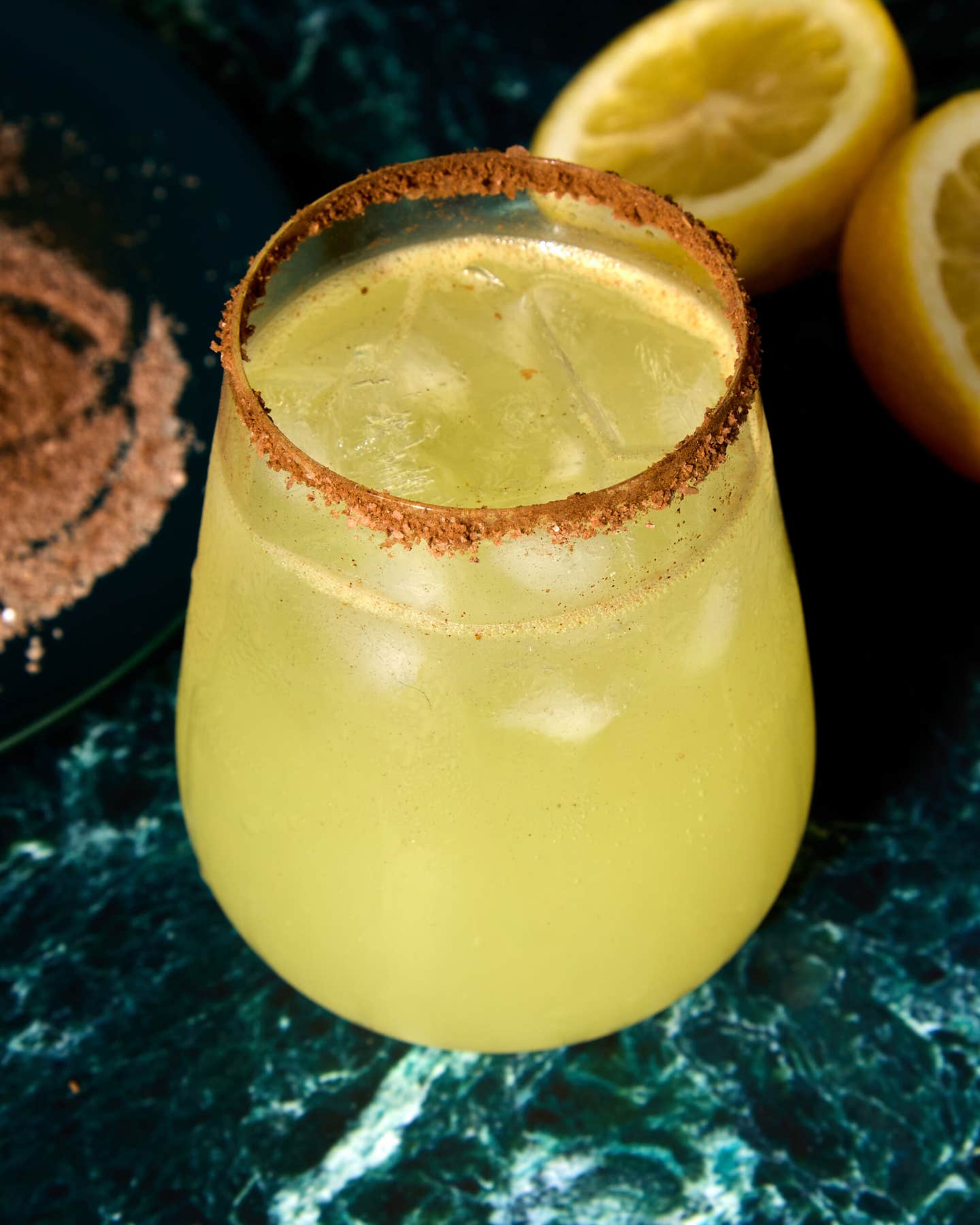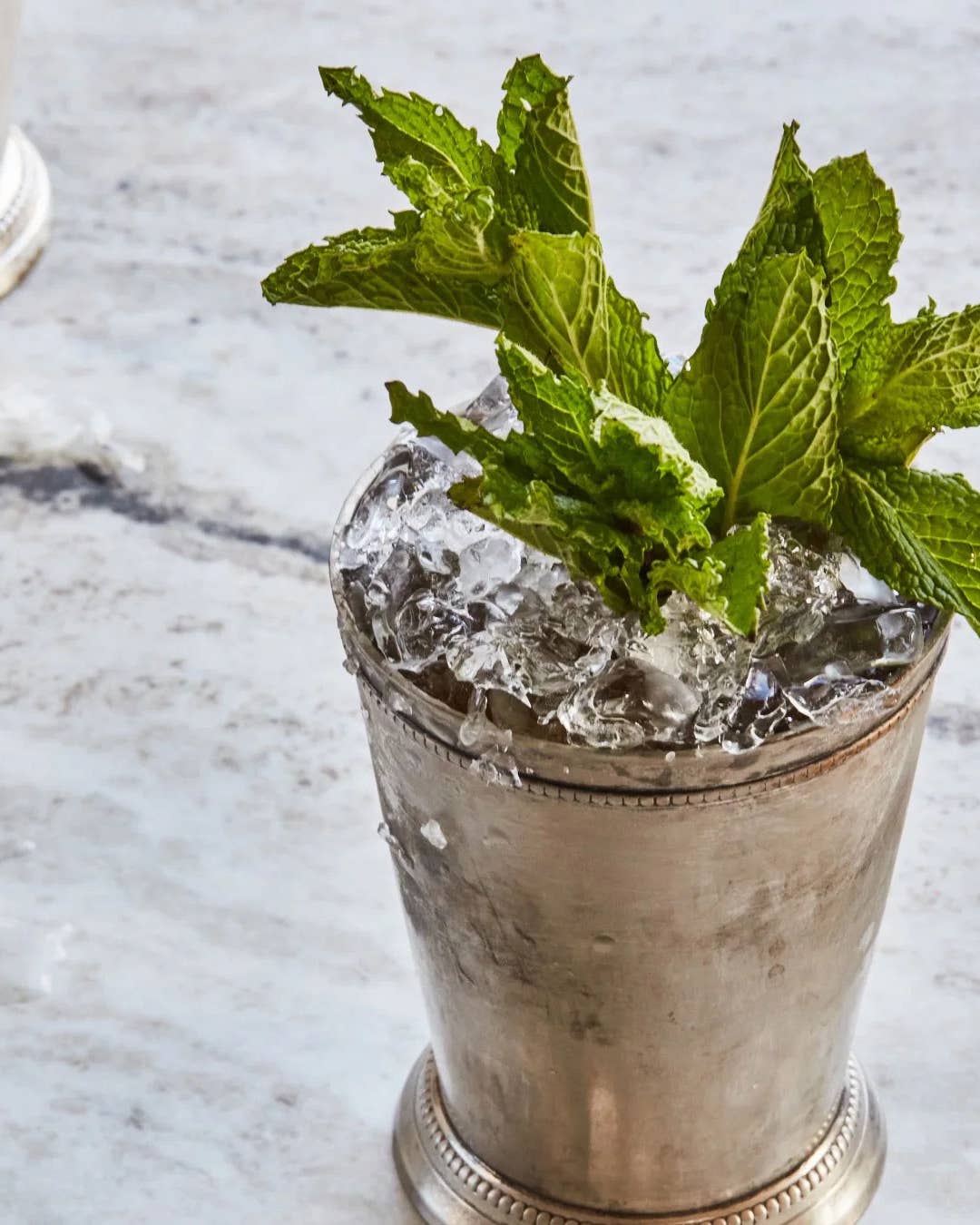
If you’ve visited a natural wine bar in the past few years, odds are you’ve tasted orange wine. Once a niche Georgian style, the amber-hued beverage has become the trendy darling of organic and biodynamic wine wonks the world over. Made from white grapes, orange wine gets its sunny tint from “skin contact”—that is, being left to macerate along with the fruit’s skin and pulpy bits after pressing. Just like ordinary white wine, the orange stuff can vary widely. However, the style generally has more richness and depth than whites, coupled with the refreshing chuggability of rosé and the unexpected—occasionally feral—flavor profiles prized by adventure-seeking natural wine drinkers.
But even many well-stocked shops can be skittish about offering orange wines. Detractors and the uninitiated often consider natural wines’ quirks and irregularities to be flaws, and teaching consumers to love them can be a daunting and expensive task.

That’s where Doreen Winkler comes in. The trailblazing German sommelier cut her teeth working in fine dining from Cyprus to Sydney to New York. She eventually focused her sights on consulting for restaurants interested in expanding their organic and biodynamic wine selections, most recently curating the cellars at Aska in Brooklyn and Sel Rrose in both Manhattan and Montauk.
Over the years, Winkler developed a particular love for orange wines. So in order to bring them to more people, she launched Orange Glou in 2019, the world’s first wine club dedicated to the style. Curating a rotating selection of these skin-contact wines, she began offering boxes of three or six bottles, shipped nationally to subscribers along with descriptions, tasting notes, and food pairing suggestions. The branding is light-hearted and inviting: “I wanted the name to reflect how fun and unpretentious orange wine can be,” she explains of her play on the cheeky French wine descriptive “glou glou” (“glug glug”)—in other words, chuggable or easy-drinking.
Her customers are enthusiastically on board. Today, Orange Glou sends out about 200 boxes a month, some to subscribers who have been with her from day one, but also to a growing list of new buyers. And this month, Winkler set up shop in New York’s Lower East Side, opening the world’s first all-orange wine shop, by the same name. I hopped on a call with her to learn more about her love affair with orange wine, and the people who drink it.

What do you suggest folks do if they want to start shopping for orange wine? Is it just a matter of talking to a somm or winemaker you trust?
Come to my store! And go to tastings. It's all about trying out new bottles and seeing what you like. I mean, it's hard because not every wine store is doing orange wine tastings. Even we are only doing them once a week at this point. Or visit a winery that makes some orange wine. Bloomer Creek in the Finger Lakes does amazing stuff, but there are a lot of wineries making it out there. Another really cool example is Hiyu Wine Farm in Oregon. It is beautiful, and just...wowzer! I hope you get to go there one day. Or go to a natural wine fair!
The Orange Glou wine club has been operating since 2019. What made you decide to also open a brick-and-mortar business?
I always want to be the first with things. I knew at some point somebody would open an orange wine store—it was just a matter of time. Orange Glou was the first orange wine subscription, and that worked out. And I thought it would be so much fun to have 100 orange wines in one place! That's what we're going to do here. We haven't expanded to 100 just yet—it's been nuts and the contractor is still building. But yeah, I really love orange wine and I needed to have a place for it.
How did you decide on the Lower East Side?
That was the other thing: It had to be here or nowhere. We’re on Broome Street between Orchard and Allen, right where New York’s natural wine scene is. There are all kinds of natural places and the coolest little restaurants. There's Ten Bells. There's a place called Skin Contact that does all kinds of natural wines—not just orange—that's where it's at.
Are most of your customers industry wine geeks, or are you getting a lot of interest from layfolks too?
The full spectrum. I have chefs, and several wine writers, another sommelier or two, and other people that have other sommelier qualifications, and some people that are in the WSET [Wine & Spirits Education Trust program]—because you don't learn anything about natural wine there—who want to really dive into these other categories as well.
Do you think orange wine mostly appeals to younger wine-drinkers?
That's what people want me to say, but I feel like it's all over the place, from 22-year-olds all the way up to people in their late fifties and sixties. My oldest is 65, and he's a principal in a school.
In general, I think a lot of folks have a loose idea of how to pair red and whites and rosés. Are there specific ingredients or cuisines that you think pair especially nicely with orange wines?
Well, the Georgians pair it with everything. They pair it with all meats, with grilled fish, with vegetables roasted in the oven.
But spicy food is pretty good with orange wine, especially when you have an orange pinot, or the bubbly stuff, which works really well with Indian food. And there are all kinds of cheeses that orange wine seems to go really well with too—even better than white. But it obviously depends on the specific wine and the dish.
What was one of your most successful food and orange wine pairings?
There was a Georgian wine—one of my favorite producers called Okros—and they have a mtsvane. We paired that with a Cabot Clothbound Cheddar from Jasper Hill, and it was crazy good.
Oh, that's a beautiful cheese.
It's a nutty cheese, and also the wine is a little bit nutty, and just has an amazing aroma overall. It has some saltiness and a lot of minerality to kind of take the salt out of the cheese. It melted together. It was great.
Georgia is the birthplace of orange wine, but you’re selling versions made from all over the world. What regions are you most excited about right now?
There are a lot! The most orange wine is produced in Italy. The Czech Republic is extremely exciting right now. When I was a kid, my parents always took me there and I never wanted to go. But now I really need to go, because there are a lot of cool things happening. It's close to Austria, and they have a lot of similar grapes. Then there are multiple amazing producers in Australia, including my friends at Yetti and the Kokonut. I did the harvest with them a couple of years ago. And there are a lot of domestic producers doing an amazing job, too. Joe Swick, in Oregon, and Donkey & Goat in California. And so many more from Southern California! I actually did a Skin Contact pop-up in LA, just before the pandemic, because I'm so in love with a lot of these producers. We had 20 different wines and six producers. So there's a lot of small-batch stuff happening. It's amazing, honestly.
This interview has been edited and condensed for clarity.
Keep Reading
Continue to Next Story










